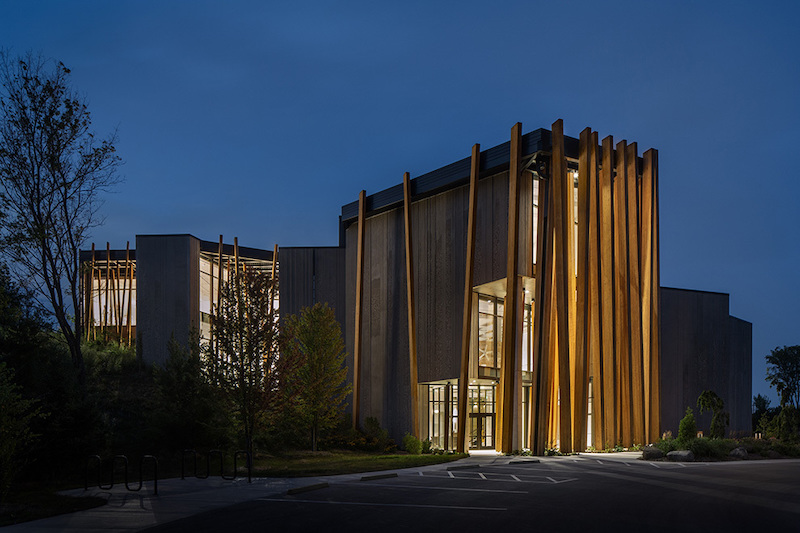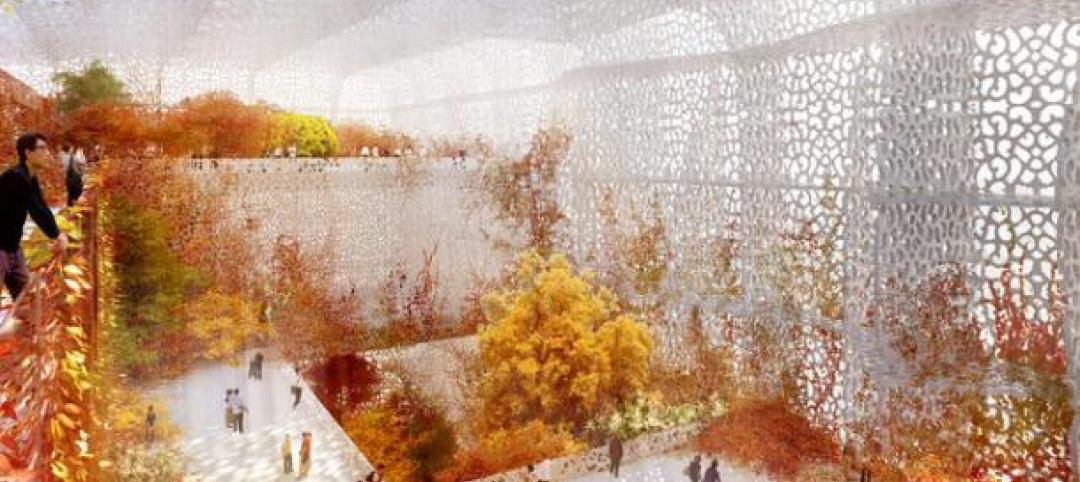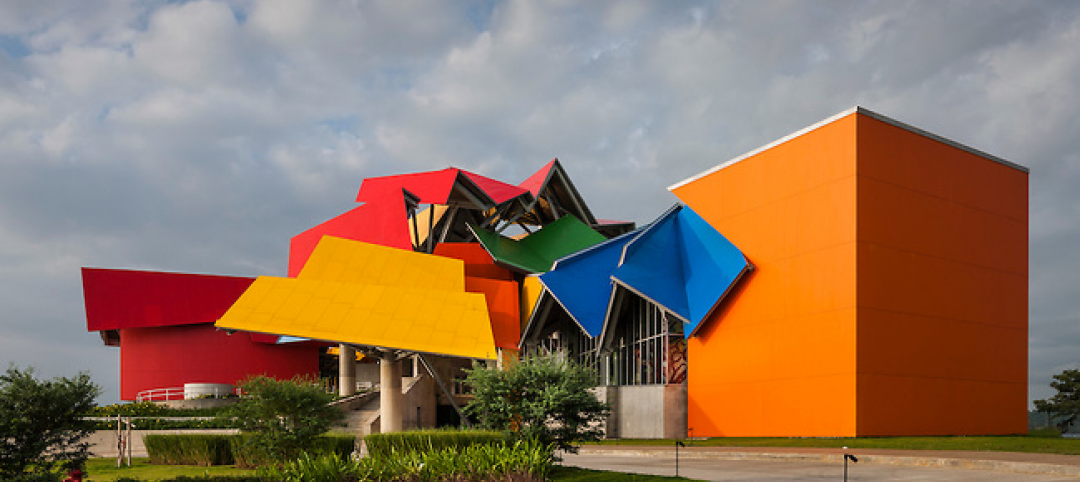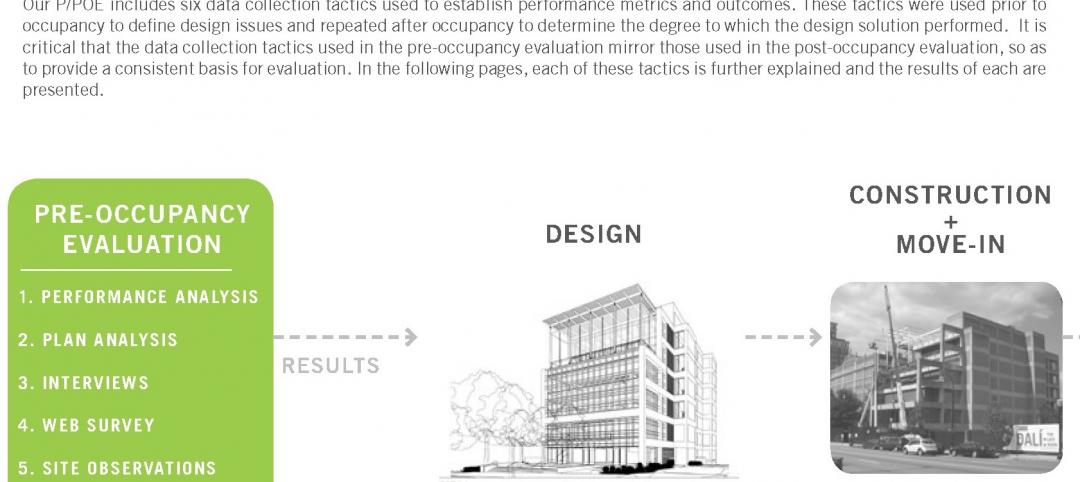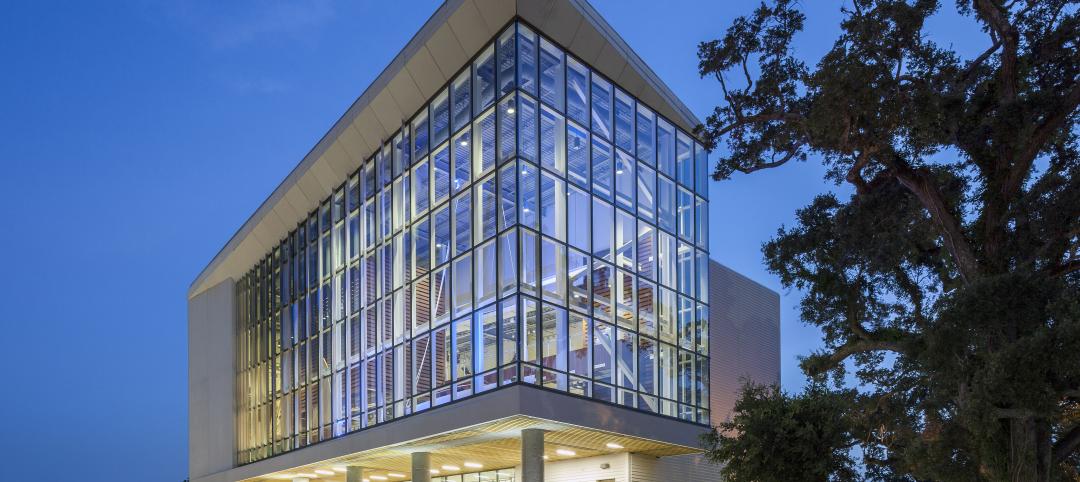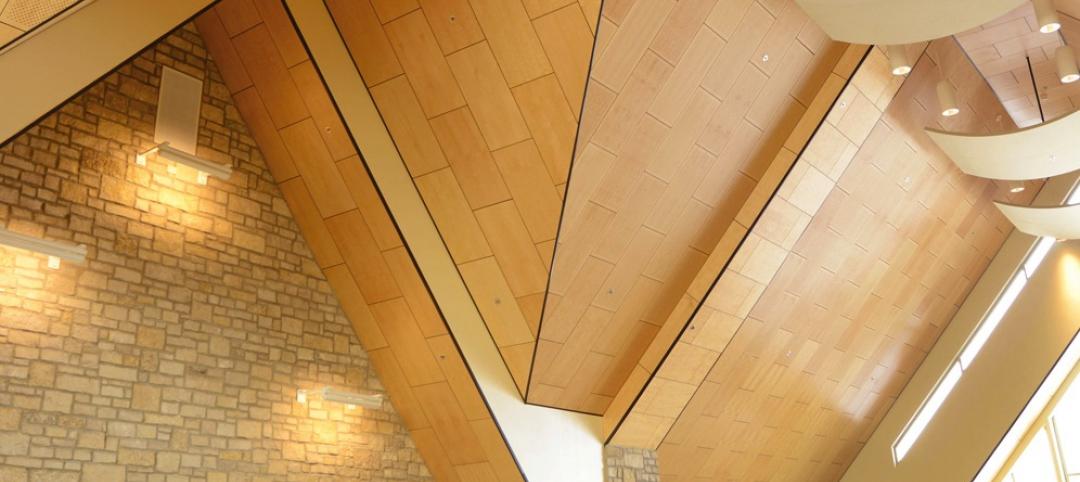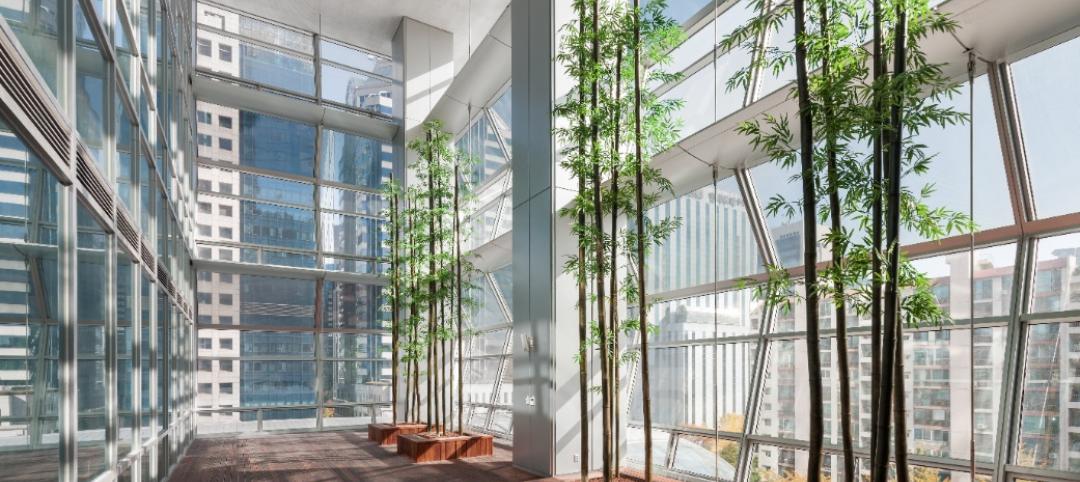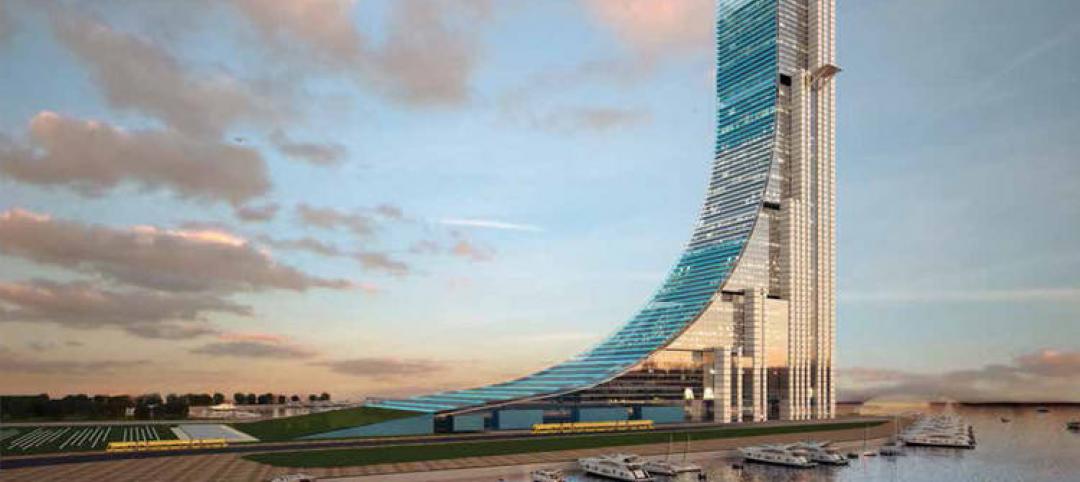The Art Preserve of the John Michael Kohler Arts Center, a 50,000-sf, three-story building in Sheboygan, Wisc., will be the world’s first museum dedicated to artist-built environments. Artist-built environments are an art form created by people who transform their homes and yards into multifaceted works of art.
The Art Preserve is located within the natural setting of a 160 acre nature preserve on Sheboygan’s west side. The building will provide exhibition space, visible storage, and preservation of more than 35,000 works of art by over 30 artists. Also included are an education area, a library, a study collection, and other spaces that will provide access to the collection for researchers, tour groups, and the public. Exhibition spaces will present artists’ work in a variety of ways with the goal to be as true to the artists and show as much of the collection a possible.
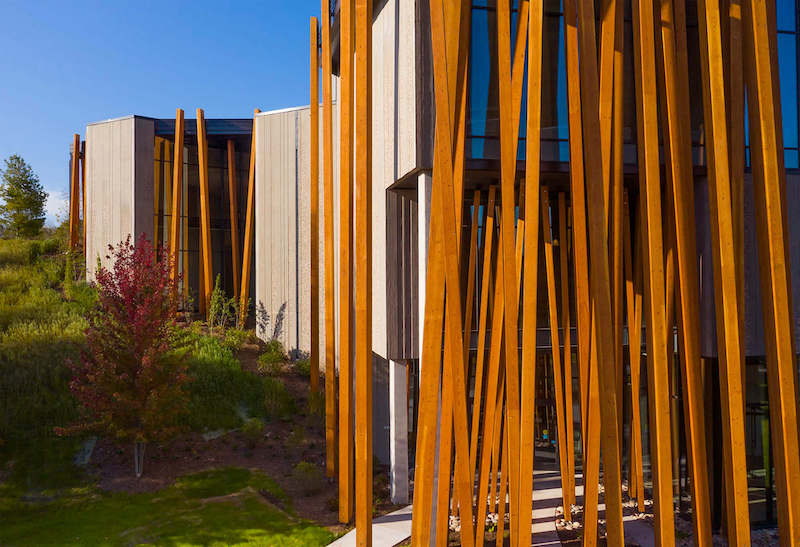
With a design that embraces the collection’s connection to nature while balancing the need to preserve the work, the building is constructed out of materials prevalent on the site such as rocks, sticks, and earth. The concrete structure is comprised primarily of regional river rock, providing the space with a large thermal mass to balance interior temperatures. The asymmetric shape of the building climbs the hillside and connects the lower entry meadow to the upper secret meadow by bridging the wooded hillside.
Embedding the building in the hillside helps it to maintain a constant temperature, moderating the heating and cooling load of the building. It also helps in creating a different feel for each of the floors as the visitor makes their way up and down the structure. Level 1 feels of the earth with its heavy river rock walls whereas level 3 opens to the sky, has views out to the tree canopies beyond, and allows access to the upper meadows of the site.
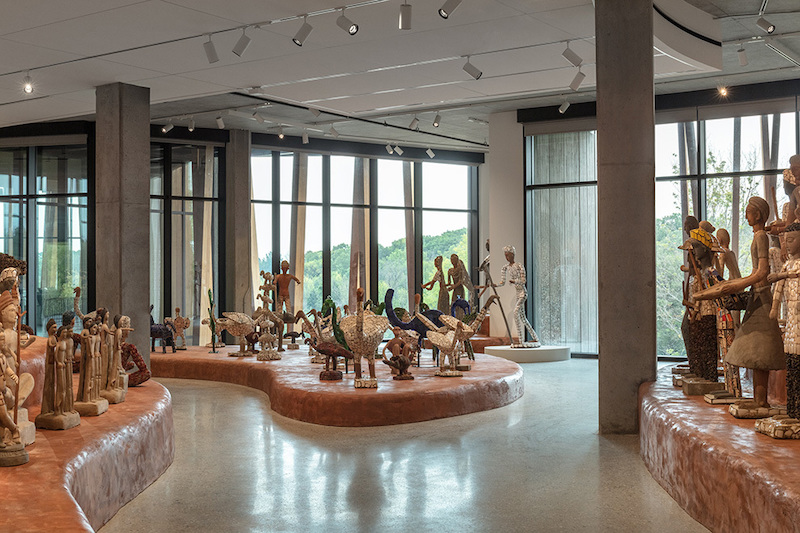
Visitors enter the main entry through a forest of timbers that serve three purposes: they assist with solar shading of the museum’s largest southern windows, they echo the hillside trees in rhythm and stance, and they create a procession through the woods into the museum.
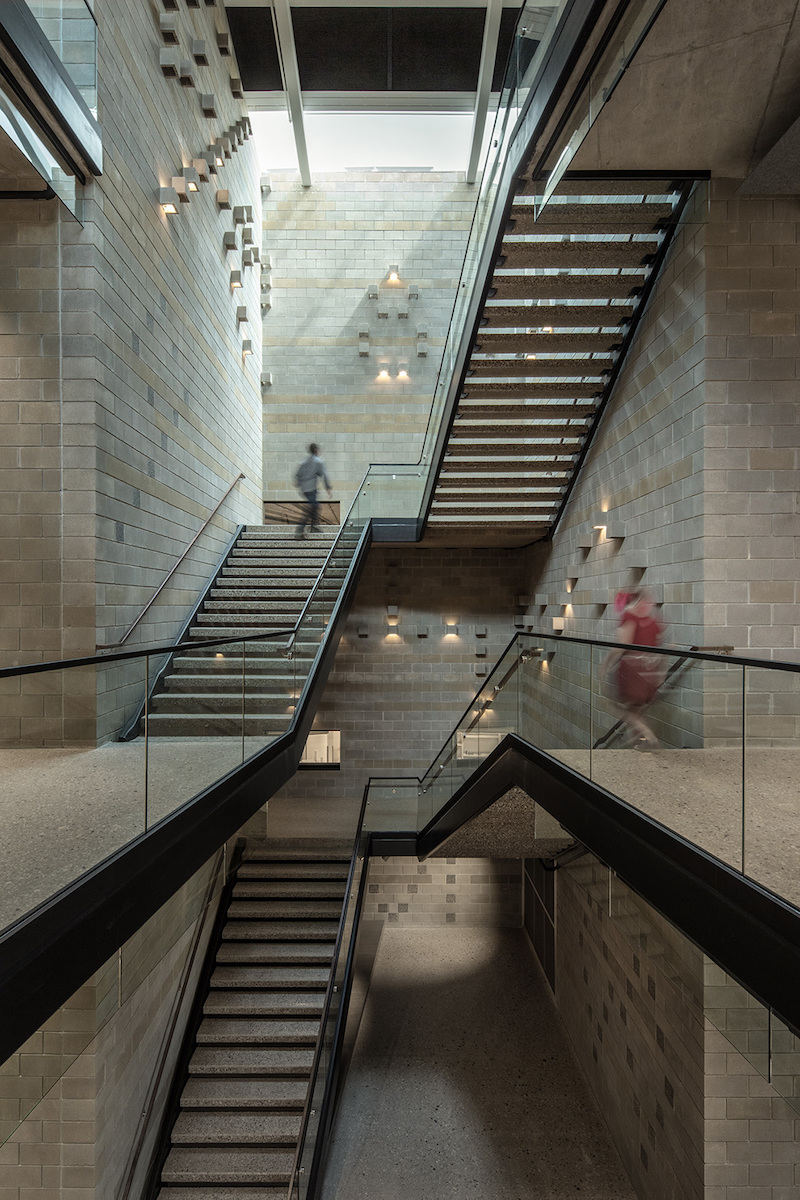
Arup collaborated with Tres Birds to design optimal environments for art preservation while keeping sustainability and patron experience in mind. These environments include:
• A lighting scheme with motion-sensing LEDs designed to protect artwork, save energy, and make the space more inviting for patrons
• Sound absorbing treatments to enhance acoustic experience and mitigate noise, especially during lively hours or docent tours
• Tightly controlled environment for air quality to prevent mold or corrosion and preserve the artworks
• High-performing building envelope, including careful window placement and a sunken northern façade, as well as energy efficient mechanical systems to endure the cold Wisconsin winters while conserving energy.
The museum opened to the public on June 26.
Related Stories
| Oct 10, 2014
A new memorial by Zaha Hadid in Cambodia departs from the expected
The project sees a departure from Hadid’s well-known use of concrete, fiberglass, and resin. Instead, the primary material will be timber, curved and symmetrical like the Angkor Wat and other Cambodian landmarks.
| Sep 25, 2014
Jean Nouvel unveils plans for National Art Museum of China
Of the design, Nouvel describes it as inspired by the simplicity of “a single brush stroke.”
| Sep 24, 2014
Architecture billings see continued strength, led by institutional sector
On the heels of recording its strongest pace of growth since 2007, there continues to be an increasing level of demand for design services signaled in the latest Architecture Billings Index.
| Sep 24, 2014
Frank Gehry's first building in Latin America will host grand opening on Oct. 2
Gehry's design for the Biomuseo, or Museum of Biodiversity, draws inspiration from the site's natural and cultural surroundings, including local Panamaian tin roofs.
| Sep 22, 2014
4 keys to effective post-occupancy evaluations
Perkins+Will's Janice Barnes covers the four steps that designers should take to create POEs that provide design direction and measure design effectiveness.
| Sep 22, 2014
Biloxi’s new Maritime and Seafood Industry Museum is like a ship in a bottle
Nine years after the Museum of Maritime and Seafood Industry in Biloxi, Miss., was damaged by Hurricane Katrina’s 30-foot tidal surge, the museum reopened its doors in a brand new, H3-designed building.
| Sep 22, 2014
Sound selections: 12 great choices for ceilings and acoustical walls
From metal mesh panels to concealed-suspension ceilings, here's our roundup of the latest acoustical ceiling and wall products.
| Sep 16, 2014
Shigeru Ban’s design wins Tainan Museum of Fine Arts competition
Pritzker Prize-winning architect Shigeru Ban has won an international competition organized by The Tainan Museum of Art in Taiwan. Ban's design features cascading volumes with an auditorium, classrooms, and exhibition galleries.
| Sep 15, 2014
Ranked: Top international AEC firms [2014 Giants 300 Report]
Parsons Brinckerhoff, Gensler, and Jacobs top BD+C's rankings of U.S.-based design and construction firms with the most revenue from international projects, as reported in the 2014 Giants 300 Report.
| Sep 15, 2014
Argentina reveals plans for Latin America’s tallest structure
Argentine President Cristina Fernández de Kirchner announces the winning design by MRA+A Álvarez | Bernabó | Sabatini for the capital's new miexed use tower.


